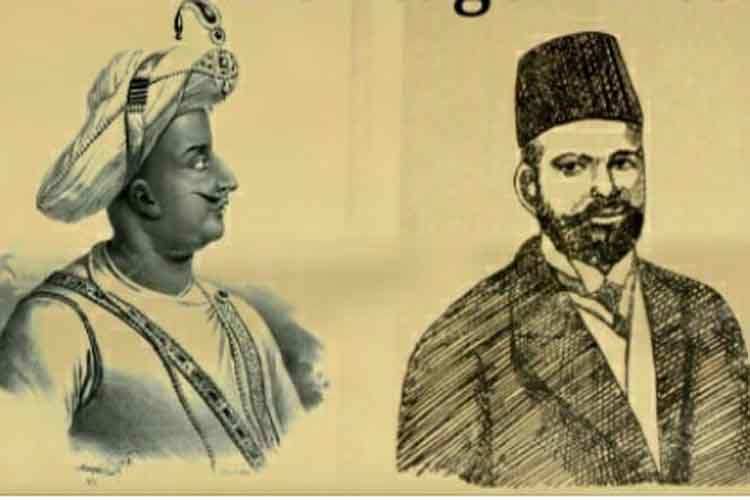(English: Nawab Syed Muhammad Bahadur, Death- 12 February 1919) was an Indian politician. He presided over the Karachi Conference of the Indian National Congress in 1913. Badruddin Tayyabji and Rahimatullah M. Sayani were the third Muslims who presided over a Congress conference.
Introduction
Nawab Syed Mohammad Bahadur was the son of Mir Humayun Bahadur, one of the most rich Muslims in South India. Humayun Bahadur was a Muslim with serious nationalist ideology, who helped the Indian National Congress by supporting both financial and intellectual in his early stages. In the third Indian National Congress held in 1887, Nawab Syed Mohammad Bahadur provided financial help to Congress leaders. Nawab Syed Muhammad was a descendant of his mother’s famous Tipu Sultan from his mother. He was the grandson of Shahzadi Shah Rukh Begum, daughter of Sultan Yasin, the fourth son of Tipu Sultan. The date of his birth could not be known from any reliable source; According to a Hindu, he died on 12 February 1919.
political life
The active political life of Nawab Syed Mohammad Bahadur was focused between Madras and two cities of Delhi. He was at a time when the Muslim League did not form a terrorist organization and was demanding exclusive privileges. He was not a member of the Muslim League, as his own view was nationalist.
Member of Indian National Congress
Nawab Syed Mohammad Bahadur joined the Indian National Congress in 1894 and became an active member of the organization. In all his speeches and addresses, Syed Muhammad emphasized that Muslims and Hindus should live like brothers and their different religions do not separate them from each other but keep them together. He seriously believed that the main objective of the Indian National Congress is to unite the people of India for the strong nation. After the great leader Gopal Krishna Gokhale, Syed Muhammad in politics can be considered as a liberal leader. He did not believe in revolutionary activities and his goal of political freedom was not to separate from the British Empire.
Fans of British spirit
Syed Mohammad Bahadur, the Nawab of the British spirit of justice and clarity, was a fan. Therefore, the self -governance of the British Empire was the ultimate goal of early Indian leaders and Syed Muhammad was one of them. He was more excited due to racial discrimination and equality from Indians in South Africa. He had severely criticized the British government for boycott of the Turkish Empire after World War I. He said that -“All Indian Muslims should join together and save the Turkish Empire and against disintegration.”[1]
chairman
Nawab Syed Mohammad Bahadur, a leader who believed the social uplift of the public, was the President of ‘Madras Mahajan Sabha’ since 1903. His nationalist views were rewarded from the election as the President of the Indian National Congress in 1913. He was the first Muslim Sheriff of Madras and was appointed to the post in 1896. In 1900, Nawab Syed Mohammad Bahadur was nominated for the ‘Madras Legislative Council’ and in 1905 for the Imperial Legislative Council. When he attended Queen Victoria’s ‘Diamond Jubilee Celebration’ in 1897, Syed Muhammad was awarded the title of Nawab by the British Government.[2]
Idea
Nawab Syed Mohammad Bahadur’s views were very generous on both general and technical education. He was very sad to see heavy illiteracy among Indians in the early twentieth century. He believed that- “The main duties of the states are to educate their people through the establishment of free primary schools.” Nawab Syed Mohammad Bahadur believed that- “The stability of the state and the loyalty of his citizens towards the state, there are two pillars of social balance, which should be made on an educated social basis.” But he also emphasized that the government should pay more attention to technical education, which will promote industrial development and economic welfare of the people.










